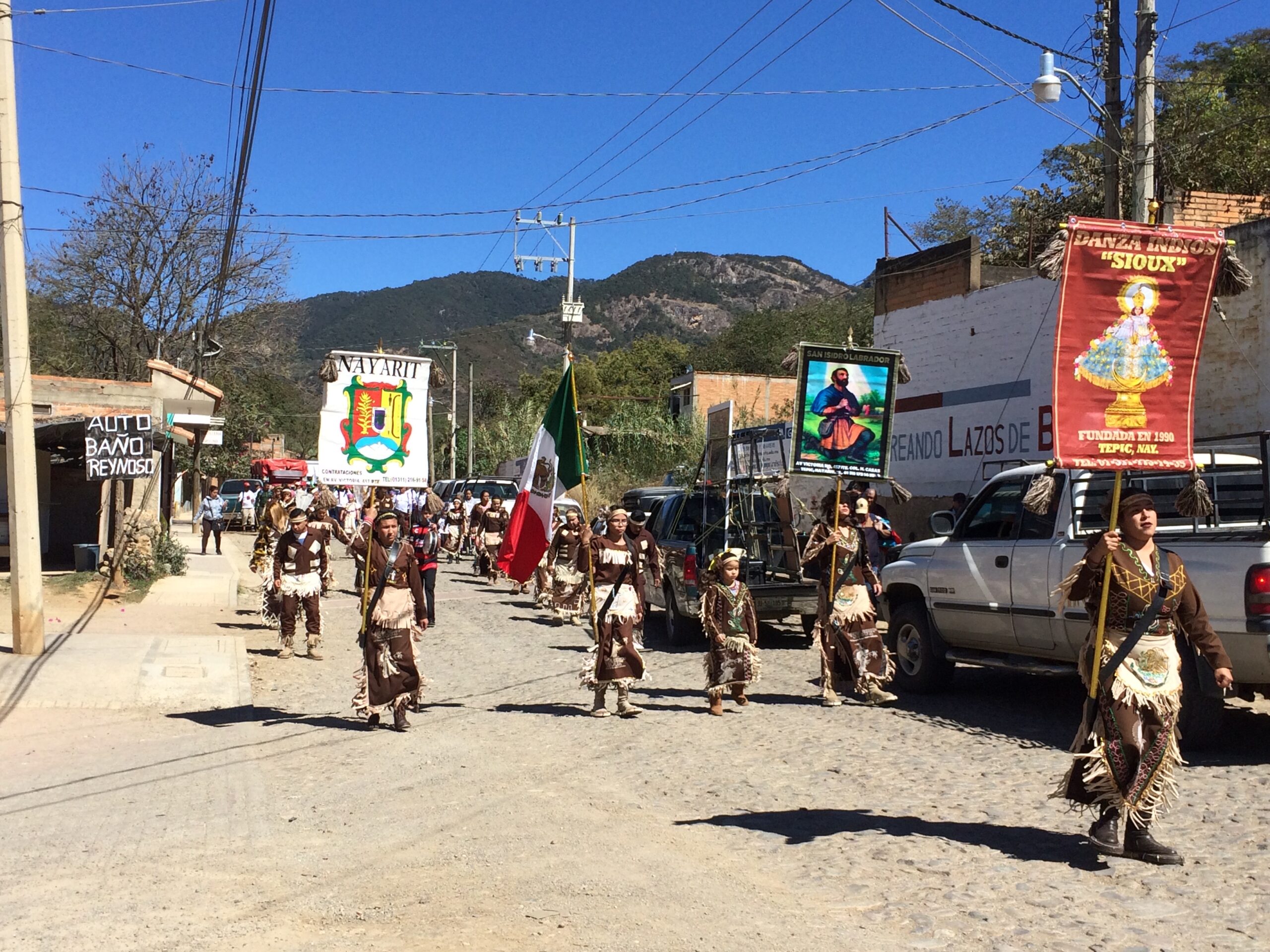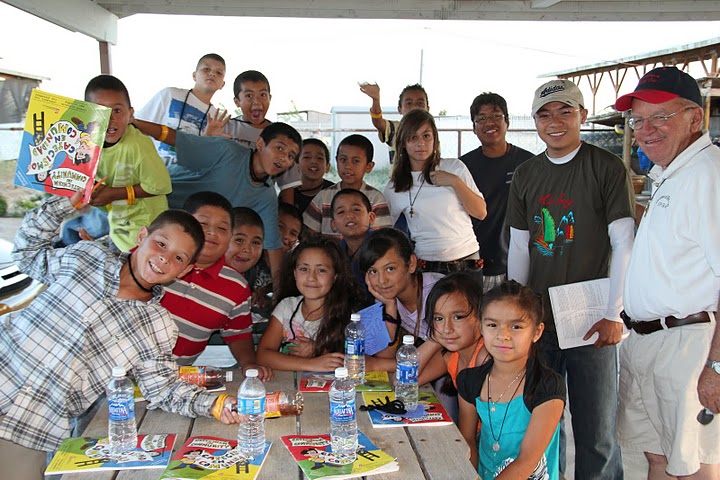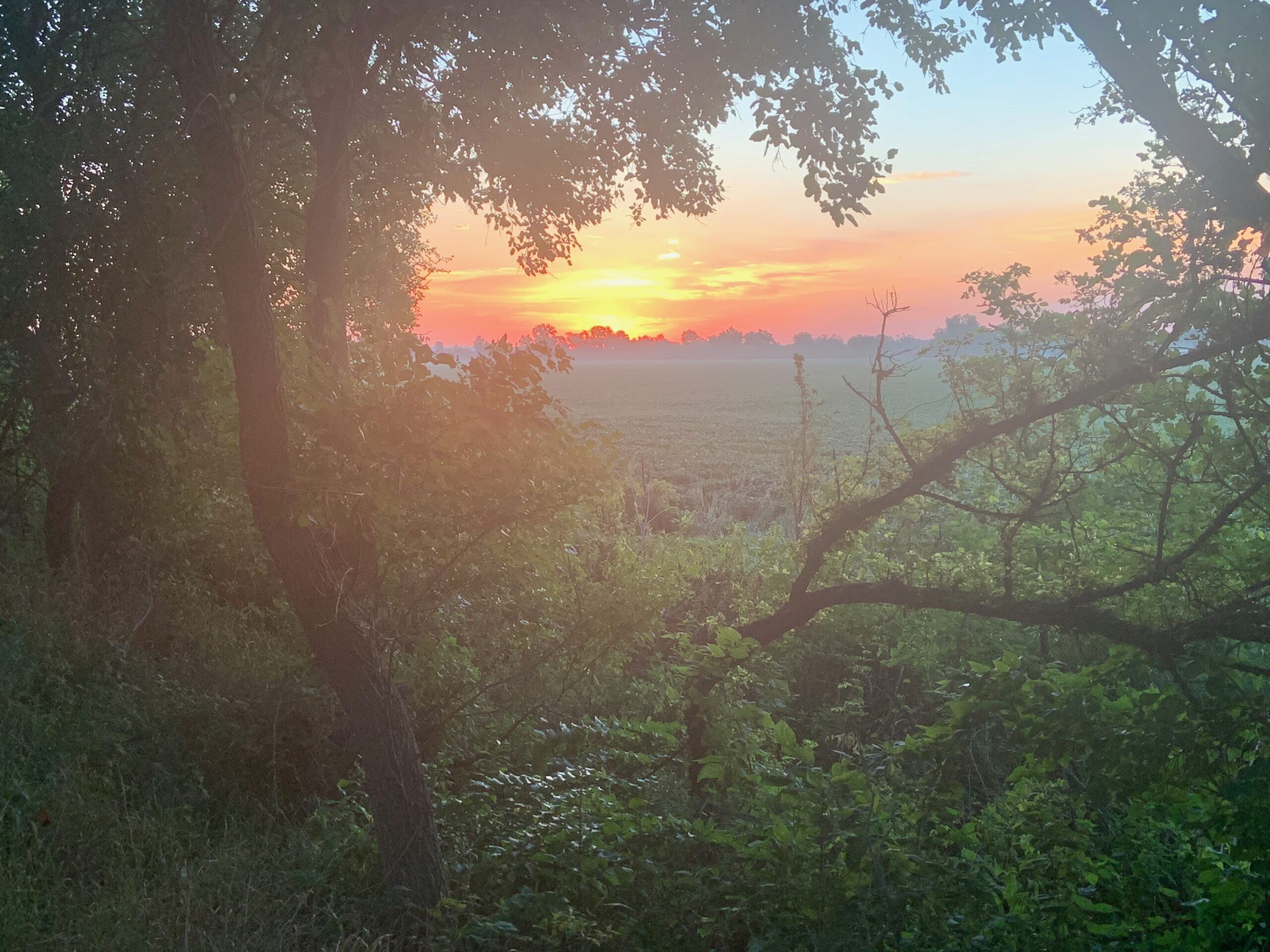Lighten the Burden / Aligera la Carga
La foto arriba es de matachines, entrando un santuario en México.
El mensaje hoy continúa el tema, Aligera la Carga. Este sigue la reflexión de ayer, y se encuentra en capítulo ocho del libro, La Fe del Migrante.
The picture above is of matachines dancers on pilgrimage to a Marian shrine in Mexico.
Today’s message continues the theme of Lighten the Burden. It follows from yesterday’s reflection, and is also found in chapter 8 of the book, Migrant Faith.
Ningún Programa Atiende las Necesidades de Todos
Cada parroquia necesita alternativas para aquellos que no pueden tomar parte en los programas ordinarios de la parroquia. Ningún programa atiende las necesidades de todos los católicos en una parroquia determinada. Aún los programas más maravillosos no son capaces de atender las necesidades de un número significante de personas en una comunidad.
Como pastor en la zona rural de Kansas, yo insistí en que tuviéramos un programa de escuela de verano de Primera Comunión para los niños que no podían asistir durante el año escolar. Aunque algunos opinaban que el programa que duraba un año era adecuado para todos y que un programa de verano no era necesario, treinta y nueve niños del tercer al séptimo grado asistieron al programa. Más de la mitad de ellos venían de granjas y lecherías de las afueras del pueblo. Los padres expresaron gratitud porque sus hijos tuvieron la oportunidad de recibir su Primera Comunión. Era difícil para ellos traer a sus hijos al pueblo durante la siembra y la cosecha. Además, en el invierno siempre había unos días de nieve. Tuvimos una experiencia inusual en la asistencia de los jóvenes en las clases. El programa de dos semanas duraba tres horas al día, cinco días cada semana. Todos los alumnos en el programa tuvieron asistencia perfecta. Treinta y nueve niños con asistencia perfecta en un programa de educación religiosa muestran la gratitud de las familias por esta oportunidad.
Reglas, no barreras
Desde el principio de la Iglesia, había una necesidad de introducir a las nuevas personas a la fe. En Pentecostés, 3,000 personas escucharon el sermón de Pedro y la comunidad los acogió. Los bautizaron y los invitaron para la fracción del pan. San Pablo les preguntó a varios hombres si habían recibido al Espíritu Santo. Cuando le dijeron que habían sido bautizados pero que no sabían del Espíritu Santo, San Pablo les impuso las manos y ellos recibieron al Espíritu Santo.
En la Iglesia primitiva, el Concilio de Jerusalén habló del problema de admitir a los no judíos a la Iglesia. Se cuestionaba si los no judíos necesitaban ser circuncidados como Judíos para poder bautizarse en Cristo. Al final de la discusión, Pablo y Bernabé fueron enviados a predicarles a los no judíos. Los Apóstoles enviaron una carta que decía: “Fue el parecer del Espíritu Santo y el nuestro no imponerles ninguna otra carga fuera de las indispensables” (Hechos 15,28 ).
En la Iglesia primitiva, el catecumenado se desarrolló al llegar más gente a la Iglesia. Los ritos de iniciación se desarrollaron como medios para acoger a la gente en la vida de la comunidad. Desde el principio de la Iglesia, ha habido desarrollo en la educación y formación religiosa.
En el desarrollo de programas de formación, se establecen reglas para el buen orden de la comunidad. Los métodos de los programas introducen ordenadamente a los nuevos miembros a la comunidad. Los programas bien administrados del Rito de la Iniciación Cristiana crean experiencias maravillosas de bienvenida a la comunidad para aquellos que pueden participar en la experiencia. Sin embargo, la vida de la gente ordinaria está llena de dilemas inesperados. Los programas que requieren asistencia a cierto número de clases o un periodo extendido de tiempo de preparación deben tomar en cuenta las circunstancias especiales.
La enfermedad, la muerte de un ser querido, la pérdida de trabajo, una crisis familiar y otros acontecimientos ocurren en las vidas de la gente ordinaria. Para cualquier horario de clases que una parroquia establezca, siempre habrá personas que no podrán asistir a un programa “ordinario”. Los pobres, los migrantes y los trabajadores jóvenes tienen poco control de sus horas de trabajo y de la estabilidad en sus vidas. La flexibilidad es necesaria para responder a toda la inestabilidad en la vida del Pueblo de Dios.
(Voy a continuar esta reflexión un día más. Que nosotros “Aligera la carga.”)
No program serves the needs of all
Every parish needs alternatives for those unable to take part in the ordinary parish programs. No program serves the needs of all Catholics within a given parish. Even the most wonderful of programs are unable to be attended by significant numbers of people in any given community.
As pastor in rural Kansas, I insisted that we have a summer school program for First Communion for children unable to attend during the school year. Although some felt that the yearlong program was available to all and such a summer school was unnecessary, thirty-nine children from third to seventh grade entered the program. Over half of them came from farms and dairies outside of the town. Parents expressed gratitude that their children had an opportunity to receive their First Eucharist. It was difficult for them to bring their children into town during planting and harvesting. Also, in the winter there would always be a couple of snow days. We had an unusual experience in the attendance of the young people at the classes. The two-week program was for three hours each day, five days each week. All the students in the program had perfect attendance. Thirty-nine children having perfect attendance in a religious education program shows the gratitude of those families for this opportunity.
Rules, not barriers
From the earliest days of the Church there was a need for the initiation of new people into the faith. Hearing only the Sermon of Peter, 3,000 were received into the community on Pentecost. They were baptized and welcomed for the breaking of the bread.
St. Paul asked several men if they had received the Holy Spirit. When they said they had been baptized but did not even know of the Holy Spirit, St. Paul laid hands on them and they received the Spirit.
In the early Church, the Council of Jerusalem addressed the problem of bringing Gentiles into the Church. There was the question of whether Gentiles needed to be circumcised as Jews in order to be baptized into Christ. At the end of the discussion, Paul and Barnabas were sent to preach to the Gentiles. The Apostles sent along a letter that said, “It is the decision of the Holy Spirit, and ours too, not to lay on you any burden beyond that which is strictly necessary” (Acts 15:28).
In the early Church, the catechumenate developed as more people entered the Church. Rites of initiation developed as ways of welcoming people into the life of the community. There have been developments in religious education and formation from the beginning of the Church.
In the development of programs of formation, rules are established for the good order of a community. The methods of the programs form an orderly entrance into the life of the community for new members. Well-administered programs of Rite of Christian Initiation create wonderful experiences of welcome into the community for those able to participate in the experience. Yet life is filled with unexpected dilemmas in the lives of ordinary people. Programs that require attendance at certain numbers of classes or an extended period of time of preparation must address special circumstances.
Illness, the death of a loved one, the loss of a job, family crises, and other events enter the lives of ordinary people. No matter when a parish sets a schedule for classes, some people will not be able to attend the “ordinary” program. The poor, the migrant and young workers have very little control of their hours of work or the stability of their lives. Flexibility is necessary to respond to all of the instability in the lives of the People of God.






